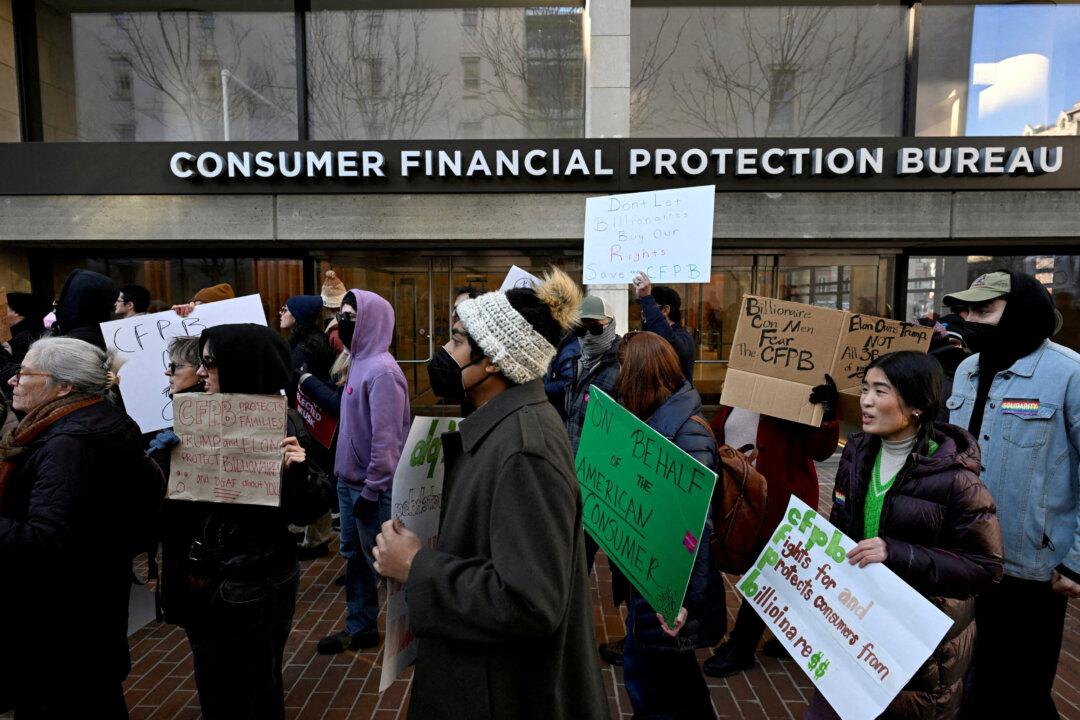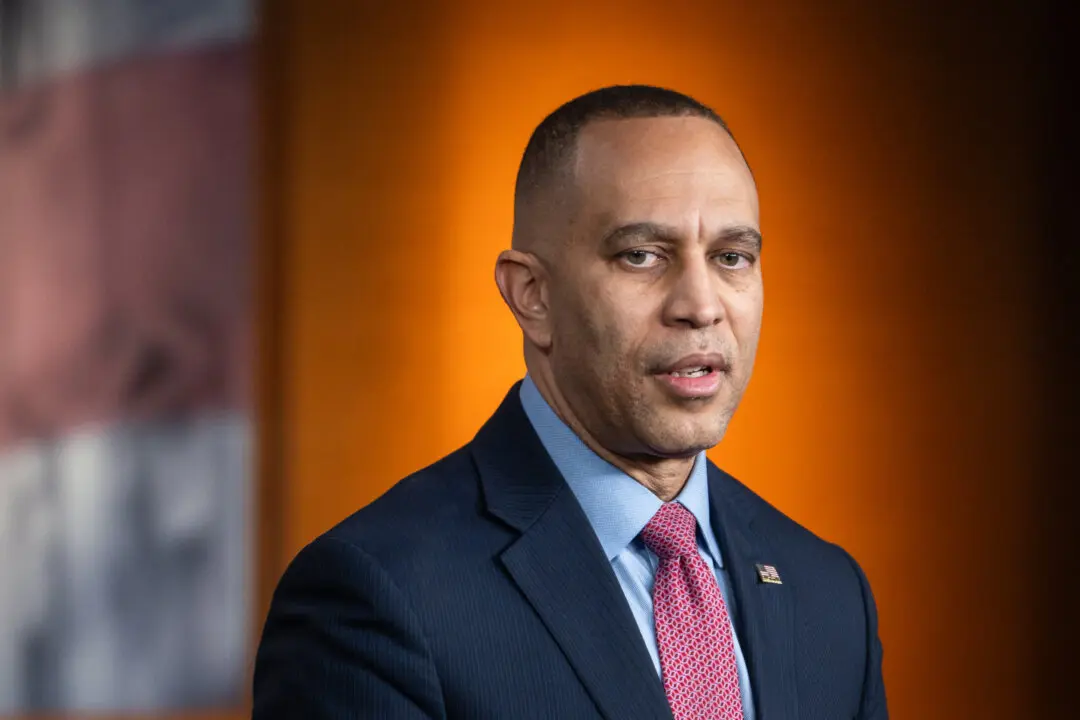A federal appeals court on April 28 lifted its previous order that had allowed the Trump administration to carry out workforce reductions at the Consumer Financial Protection Bureau (CFPB).
On April 11, the appeals court partially stayed a preliminary injunction issued by a district court, allowing the CFPB to proceed with laying off workers if a “particularized assessment” determined their roles were not essential to the agency’s statutory duties. However, the court barred the administration from enforcing a stop-work order at the agency.





